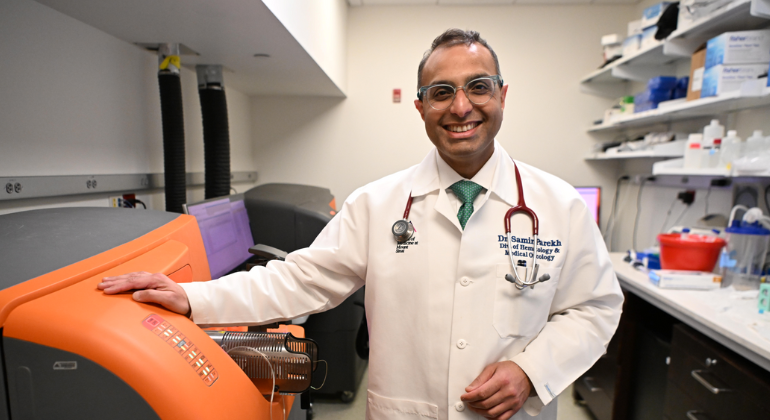"Coping With Seasonal Affective Disorder When You Have Cancer" - David Haas
As summer changes to fall and continues to progress to winter, some individuals may get the sense that they are in a seasonal funk, when they may actually suffer from seasonal affective disorder (SAD). SAD is a subset of depression associated with the change of season, and is most commonly experienced from the fall through the winter season. The symptoms can start out mild and become more serious, making it difficult to diagnose in some instances. For cancer patients going through treatment, it may also be difficult to decipher SAD from other side effects of treatment, like cancer-related fatigue. The Icahn School of Medicine at Mount Sinai started a clinical trial last year that’s studying systematic light exposure in the treatment of cancer-related fatigue. This study is looking at a low-cost, low-burden intervention for these symptoms with daily administration of light from a handheld device. The study found that bright white light applied daily helped survivors with their symptoms, while the group using the dim red light still reported chronic levels of fatigue. Overall, researchers are hopeful these bright light therapies can prove to be a continued cost-effective and viable treatment option for symptoms.
- The Icahn School of Medicine at Mount Sinai

Mount Sinai’s Cancer Science in the Spotlight at 2025 ASCO
May 29, 2025 View All Press Releases
Mount Sinai Study Advances Understanding of Personalized Vaccines for Bladder Cancer
May 12, 2025 View All Press Releases
Mount Sinai Researchers Discover How Melanoma May Spread to the Brain
Apr 30, 2025 View All Press Releases
Mount Sinai Showcases Innovative Cancer Research at 2025 AACR Annual Meeting in Chicago
Apr 24, 2025 View All Press Releases
Mount Sinai Leads Phase 3 Trial in Myelofibrosis Treatment
Mar 19, 2025 View All Press Releases